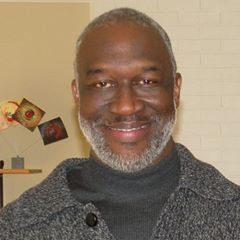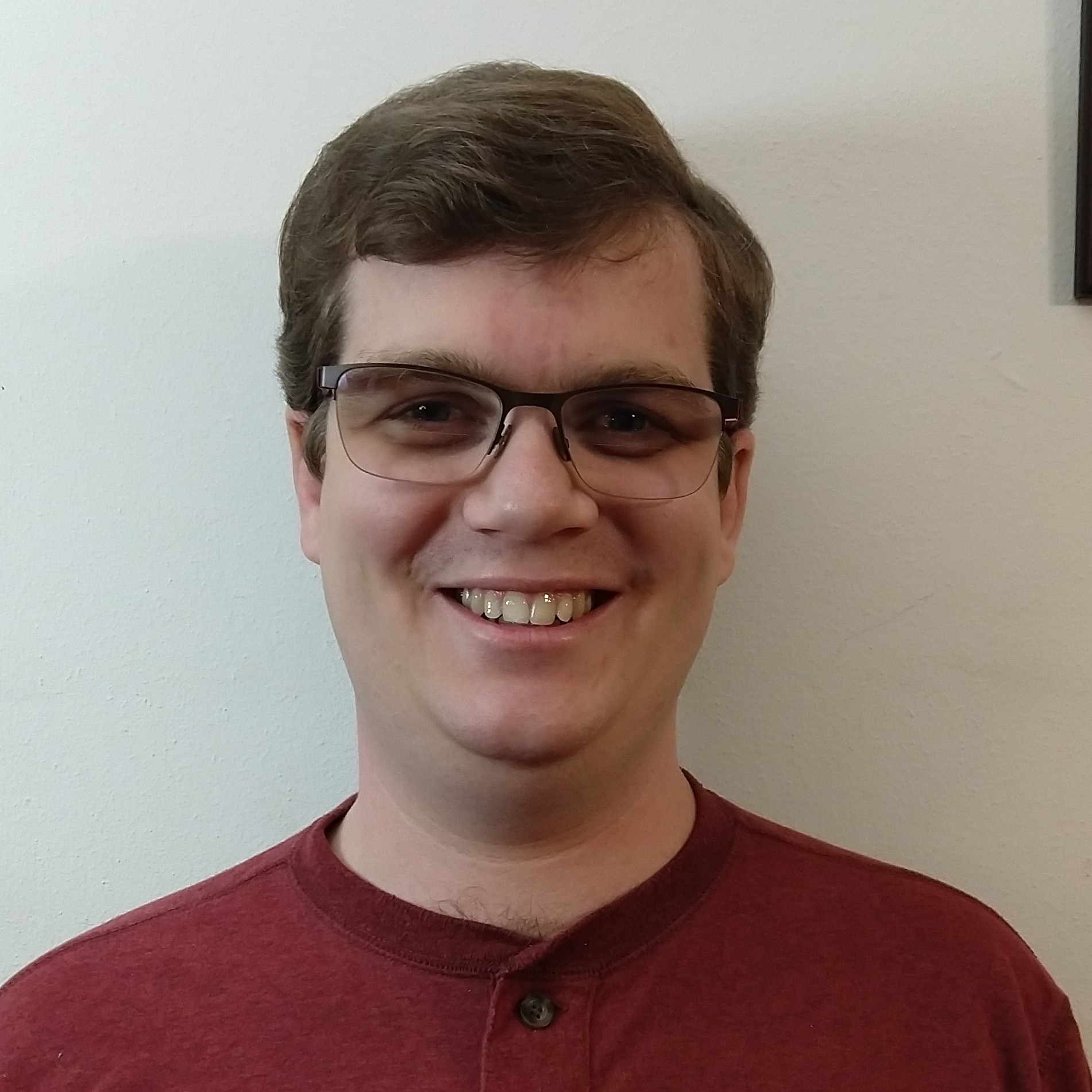Keynote Speakers
Carolyn Finney
Carolyn Finney, PhD is a storyteller, author and a cultural geographer. She is deeply interested in issues related to identity, difference, creativity, and resilience. In particular, Dr. Finney explores how issues of difference impacts participation in decision-making processes designed to address environmental issues. More broadly she likes to trouble our theoretical and methodological edges that shape knowledge production and determine whose knowledge counts. Carolyn is grounded in both artistic and intellectual ways of knowing - she pursed an acting career for eleven years, but a backpacking trip around the world and living in Nepal changed the course of her life. Motivated by these experiences, Carolyn returned to school after a 15-year absence to complete a B.A., M.A. (both of these degrees focused on gender and environmental issues in Kenya and Nepal, respectively) and Ph.D. (which focused on African Americans and environmental issues in the U.S.) She has been a Fulbright Scholar, a Canon National Parks Science Scholar and received a Mellon Postdoctoral Fellowship in Environmental Studies. The aim of her work is to develop greater cultural competency within environmental organizations and institutions, challenge media outlets on their representation of difference, and increase awareness of how privilege shapes who gets to speak to environmental issues and determine policy and action. To this end, Carolyn has worked with the media in various capacities including the Tavis Smiley Show, MSNBC, & Vice News Tonight; writing Op-Eds for Outside Magazine & Newsweek; was a guest editor & contributor for a special section on Race & the National Parks in Orion Magazine; interviewed with various media outlets including NPR, Sierra Club, Boston Globe & National Geographic; and even filmed a commercial for Toyota that highlighted the importance of African Americans getting out into Nature. Along with public speaking, writing and consulting, she served on the U.S. National Parks Advisory Board for eight years which assists the National Park Service in engaging in relations of reciprocity with diverse communities. Carolyn is also privileged to be part of The Next 100 Coalition - a first-of-its-kind coalition of civil rights, environmental justice, conservation and community leaders from around the country who put together a vision statement and policy document on diversity and public lands for the Obama Administration with the intention of having President Obama issue a Presidential Memorandum. Her first book, Black Faces, White Spaces: Reimagining the Relationship of African Americans to the Great Outdoors was released in 2014 (UNC Press).
Carolyn is currently working on a number of projects including a new book that explores identity, race, lived experience and the construction of a black environmental imaginary, and a performance piece about John Muir (The N Word: Nature Revisited). She has recently published a piece for a special issue of Harvard Design Magazine (themed Into the Woods) entitled “The Space Between the Words” (March 2018) and has another article under review for an edited volume (Not Just Green, Not Just White, T. Voyles and M. Mendoza Eds.) entitled “Radical Presence: The Shadows Take Shape”. She has also been commissioned to write ten poems for Artists Thrive, an initiative that offers practices, activities and visions for supporting artists and a thriving arts sector. In order to meet the demands of this work, Dr. Finney has recently resigned from her full-time position at the University of Kentucky.
Melvin Hall, Northern Arizona University 
Melvin Hall, Ph.D., is Professor of Educational Psychology at Northern Arizona University. Dr. Hall completed his B.S., and Ph.D., degrees at the University of Illinois at Urbana Champaign in Social Psychology and Educational Psychology respectively; and M.S. in Counseling at Northern Illinois University.
During a forty plus-year professional career in higher education, Dr. Hall has served in four successive appointments, as an academic dean, comprised of positions at Florida Atlantic University, University of California-Irvine, University of Maryland at College Park, and most recently Northern Arizona University (NAU). At NAU, Dr. Hall served as Dean of the College of Education and additionally was the principal investigator on two five-year US Office of Education GEAR UP grants providing dropout prevention programs and services to thousands of middle and high school students throughout Arizona.
Returning to full-time faculty life in 2002, Dr. Hall has melded teaching and scholarship in Educational Psychology with responsibility as co-principal investigator on five-years of National Science Foundation support for the Relevance of Culture in Evaluation Institute. Subsequent to the RCEI grant, Dr. Hall began a continuing appointment as affiliated faculty in the Center for Responsive Evaluation and Assessment (CREA) at the University of Illinois. As an external reviewer, Dr. Hall has served on numerous review panels and Committee of Visitors for the National Science Foundation EHR Division including an invited expert panel on the future of evaluation methodology in STEM programs. In 2015, he accepted an appointment as an intermittent expert at NSF and in that, capacity served as a program officer for the ADVANCE and HBCU UP Programs within the Human Resource Development Division of the EHR Directorate.
For several years, Dr. Hall served on the American Evaluation Association (AEA) Standing Committee on Diversity, initiating the association’s published statement on the importance of Cultural Competence in the field of Program Evaluation. In 2013, Dr. Hall began a three-year term as an elected member of the AEA Board of Directors. He is a Research Professor at the University of the Virgin Islands; Senior Scholar at the Association of American Colleges and Universities (where he also serves as a member of the Inclusive Excellence Commission); and a Distinguished Scholar, in the Marie Fielder Center of Fielding Graduate University. He currently serves as the lead for strategic initiatives within the NSF-funded Center for the Advancement of STEM Leadership (CASL). CASL is the first of its kind research center devoted to enhancing the role of the nation’s HBCUs as they provide critical research contributions to support the broadening participation in STEM efforts of NSF.
 Melinda Laituri, Colorado State University
Melinda Laituri, Colorado State University
Dr. Melinda Laituri is a professor of geography in the Department of Ecosystem Science and Sustainability at Colorado State University. She has held a variety of roles during her academic career. She is the Director of the Geospatial Centroid at CSU that provides support for geospatial research and teaching across the university. She was a Fulbright Scholar at the University of Botswana in the Center for Scientific Research, Indigenous Knowledge, and Innovation where she conducted research on participatory mapping and conservation planning. Professor Laituri is a Rachel Carson Fellow for Environment and Society at the Ludwig Maximillian University, Munich. She is working with environmental historians to develop story maps of environmental issues around the world. She is a visiting scientist at the Center for Geographic Analysis at Harvard University. Professor Laituri is a former National Science Foundation program officer in Geography and Spatial Sciences. Laituri is a Jefferson Science Fellow where she is the principal investigator on the Secondary Cities Initiative part of the State Department’s Humanitarian Information Unit mapping rapidly growing under-examined cities. She received her PhD from the University of Arizona in Geography and held a three-year tenure track position at University of Auckland, New Zealand before joining Colorado State University. Dr. Laituri has taught the graduate GIS courses at CSU emphasizing the use of GIS in research applications. She has integrated spatial literacy into her undergraduate watershed science courses and at the CSU Mountain Campus field-based course. Her research interests include geospatial technologies in participatory resource assessment, disaster management, and water resources. She has worked throughout the world with indigenous peoples on resource management issues using participatory mapping approaches.
 Drew Hasley, University of Wisconsin-Madison
Drew Hasley, University of Wisconsin-Madison
Andrew Hasley, Ph.D., is a postdoctoral researcher in the Computation and Informatics in Biology and Medicine training program at the University of Wisconsin – Madison. He earned a B.A. in Biology at Albion College, completing an Honors Thesis describing research on the evolution of nervous system development genes across arthropods. He earned his Ph.D. in Genetics at UW-Madison in 2016 where his dissertation research drew on fields ranging from developmental biology and classical genetics to genomics, bioinformatics, and ecology. He is currently studying how metabolic networks that mediate bacterial responses to their environment evolve. Dr. Hasley is drawn to big, interdisciplinary biological questions that often require working with large datasets.
Dr. Hasley has also been blind since birth. He is the first blind doctoral graduate from the UW-Madison Genetics program, established in 1910, and thought to be only the second from the life sciences in university history. Experience as a student and researcher with a disability in K-12 public schools, a small liberal arts college, and a large R1 institution has fostered an interest in making science education and practice more accessible to people with disabilities. Dr. Hasley is particularly interested in application of Universal Design for Learning (UDL) principals to biology instruction, minimizing the need for specific accommodations for specific disabilities. He is currently involved in a collaboration that has developed and successfully tested a tool for teaching reading and interpretation of phylogenetic trees at the undergraduate level. The activity is simultaneously tactile and visual, making it more accessible than traditional approaches. Dr. Hasley also regularly facilitates workshops for various audiences on accessible teaching practice. This includes helping incorporate UDL instruction into BIOQUEST summer workshops, which focus on improving undergraduate quantitative biology education, for the past 3 years.
 Carlos Castillo-Chavez, Arizona State University
Carlos Castillo-Chavez, Arizona State University
Carlos Castillo-Chavez is a Regents Professor, a Joaquin Bustoz Jr. Professor of Mathematical Biology, a Distinguished Sustainability Scientist and the Founding Director of the Simon A. Levin Mathematical and Computational Modeling Sciences Center (SAL-MCMSC) at Arizona State University (ASU) who has co-authored over 250 publications and a dozen books, textbooks, research monographs and edited volumes.
He was born in Mexico City immigrating to the USA in 1974. Castillo-Chavez received his bachelor’s, master’s and PhD degrees from three campuses of the University of Wisconsin Stevens Point, Milwaukee and Madison, respectively. He reached the rank of full professor at Cornell University in 1997 where he spent 18 years before moving to ASU in 2004. Over his 30 years in academia, he has mentored 25 postdoctoral students. His 46 PhD students include 21 women, 26 from US underrepresented groups and 7 from Latin America. He has been a research co-mentor to nearly 500 undergraduates. According to the mathematics genealogy project, Castillo-Chavez is among the top 200 mentor of PhD students in the history of mathematics.
Recognitions to his work include: three White House Awards (1992,1997, and 2011), the 12th American Mathematical Society Distinguished Public Service Award in 2010, the 2007 AAAS Mentor award, the 17th recipient of the SIAM Prize for Distinguished Service to the Profession and Distinguished Alumni by UW Stevens Point. He is a fellow of the AAAS (American Association for the Advancement of Science; SIAM (Society for Industrial and Applied Mathematics; Founding Fellow of the AMS (American Mathematical Society; and ACE (American College of Epidemiology). He has held honorary Professorships at Xi’an Jiatong University in China, the Universidad de Belgrano in Argentina and East Tennessee State University. Past appointments include a Stanislaw M. Ulam Distinguished Scholar at Los Alamos National Laboratory, a Cátedra Patrimonial at UNAM in México, and a Martin Luther King Jr. Professorship at MIT.
He was a member of the Board of Higher Education at the National Academy of Sciences (2009-2015) and served in President Barack Obama Committee on the National Medal of Science (2010-2015). He holds external faculty appointments at Cornell University (2004- ), Santa Fe Institute (2005- ) and Universidad de Los Andes, Colombia (2016- ).
His research lives at the interface of disease evolution, behavioral epidemiology, social dynamics, homeland security, epidemiology, addiction and sustainability. He is the inaugural recipient of the inaugural Dr. William Yslas, Outstanding STEM Award, by Victoria Foundation Award, co-sponsored by the Pasqua Yaqui Tribe of Arizona (2015).
Castillo-Chavez was elected Member-at-Large of the Section on Mathematics of the AAAS (2-16, 2016 through 2-17 2020). On February 24, 2016, the University Francisco Gavidia inaugurated the Centro de Modelaje Matemático Carlos Castillo-Chavez, in the City of San Salvador, in the Republic of El Salvador. He has been appointed to NSF’s Advisory Committee for Education and Human Resources (2016-2019) and member of NSF’s an Advisory Committee for Cyberinfrastructure. He has been named George Polya Lecturer for 2017-18. Carlos Castillo-Chavez has been the recipient throughout his academic career of grants by the National Science Foundation, the National Institutes of Health, DOD, the Department of Agriculture (Hatch) and the Sloan Foundation. He also held the position of Rector of Yachay Tech University, in Ecuador (2016-2018) an appointment made by former President Rafael Correa Delgado. His publications can be found via google citations.
 Marco Hatch, Western Washington University
Marco Hatch, Western Washington University
Marco Hatch is an Assistant Professor of Environmental Science at Huxley College of the Environment, Western Washington University. Marco is marine ecologist with a Ph.D. in Biological Oceanography from Scripps Institution of Oceanography and a member of the Samish Indian Nation. Prior to WWU he directed the Salish Sea Research Center at Northwest Indian College. At WWU he has created a wonderfully diverse lab charged with preparing the next generation of environmental scientists and leaders through fostering respect for Indigenous knowledge and providing students with a solid background in scientific methods. His research focuses on the nexus of people and marine ecology, centered on Indigenous marine management. At WWU he will continue this line of research and partners with Northwest Indian College through a joint project to provide M.S. opportunities for Native students.
 Whitney Tome, Raben Group, Green 2.0
Whitney Tome, Raben Group, Green 2.0
Update March 27th: Unfortunately Whitney will no longer be able to attend the conference.
Whitney has worked with fishermen, environmentalists, advocates, political strategists, government employees, and thought leaders to develop the approach and solutions needed for the problem. Combining her facilitation skills, knowledge of environmental issues, and understanding of people, Whitney is able to walk into any room, ask the right questions, develop a strategy in the moment and leave everyone with action items and tasks.
Prior to joining the Raben Group, Whitney served as the director of diversity and inclusion at the National Parks Conservation Association where she lead, defined and crafted metrics and measures for the organization’s diversity and inclusion efforts. Whitney has advised complex ocean stakeholder processes as a Program Manager and Mediator at the Meridian Institute including facilitating public meetings for regional ocean planning bodies that included state, federal and tribal partners.
At Environmental Defense Fund (EDF), Whitney served as a strategist, cat herder and trusted advisor in dozens of state and federal political campaigns. She also developed, launched and grew the Fisheries Leadership and Sustainability Forum – a partnership between EDF, Duke and Stanford. Whitney developed everything from the curriculum for fisheries managers to managing the steering committee, budget and partners for the Fisheries Forum.
In developing the Fisheries Forum. Whitney adopted a ‘soup to nuts’ management process. She developed the curriculum for and identified experts in fisheries science, law and policy to help educate federal fisheries managers. Her subtle, yet persuasive approach with fishermen, state and federal employees earned her respect. Within a few short years, due to Whitney’s continuous relationship building, and well-executed and informative events, the National Marine Fisheries Service asked the Forum to lead an entire sector of the largest conference in the United States focused on the reauthorization of the Magnuson-Stevens Act – Managing Our Nation’s Fisheries Conference.
Whitney earned a bachelor’s degree in political science from Middlebury College and a J.D. from American University’s Washington College of Law. She also won the International Chamber of Commerce’s (ICC) International Mediation Competition in Paris, France.
In addition to serving as Counsel, Whitney is also the executive director for Green 2.0, an initiative to increase the racial diversity of the largest national environmental NGOs, foundations and federal government agencies.

